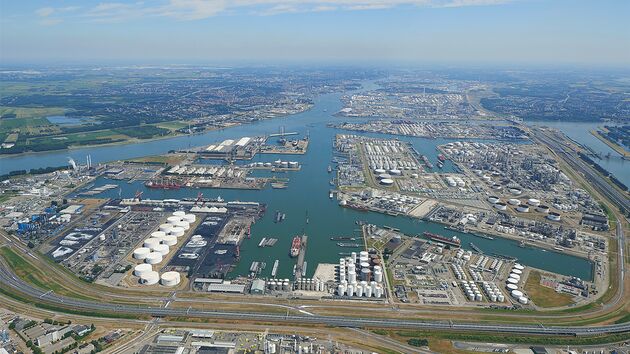A previous feasibility study by the Port of Rotterdam Authority and Yokogawa Electric Corporation has shown that optimizing energy and utility use at companies can result in cost savings of 5-10%.
By optimizing energy consumption “behind the meter,” companies that produce steam as a by-product can increase production at optimal times, such as when a neighbouring company requires more steam. This reduces heat losses and helps prevent or alleviate congestion in the electricity grid.
Building on these findings, the Port of Rotterdam, Yokogawa and Distro Energy are launching a large-scale pilot project involving companies in the Dutch port’s industrial cluster. The one-year pilot, starting at the end of this year, will include up to six companies and two grid operators.
These companies’ energy data will be used to develop an orchestration platform, enabling them to virtually coordinate the use and exchange of utilities. This will be the first time such data is exchanged on an industrial scale. A secure industrial cloud infrastructure will manage the data flows, while a cluster energy management system will optimize energy distribution. Distro Energy’s trading platform will assess the commercial value of energy exchanges and the associated CO2 impact.
The pilot, named the Starlings project, is backed by a US$2.2 million investment from the Port of Rotterdam. The project is inspired by the coordinated movement of a flock of starlings, where the group’s collective actions provide safety and flexibility, just as this initiative aims to enhance the resilience of the participating companies.
The first results of the pilot are expected by mid-2025. If the outcomes demonstrate significant improvements in energy efficiency, CO2 reduction, and cost savings, discussions will be held with the market on the next steps for scaling the initiative.
The project is not only a technical challenge but also a social experiment, as company management must navigate the varying effects of the changes on individual performance within the cluster.







